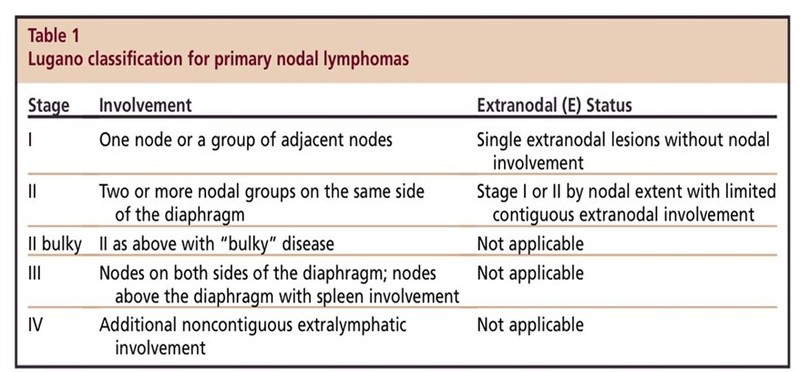B-cell and T-cell Lymphomas
M3 India Newsdesk Nov 17, 2023
This article provides a comprehensive overview of the many types of B-cell and T-cell lymphomas, including information on symptoms, diagnosis, and common treatment approaches. Moreover, it emphasises advanced therapies for cases that resist or reoccur after initial treatments.
B-cell lymphomas
B-cell lymphoma is a form of cancer that starts in a white B-cell called a lymphocyte. They are often found in lymph nodes or other lymphoid tissues such as the spleen.
Most B-cell lymphomas are non-Hodgkin lymphomas (NHL) and others are Hodgkin lymphomas. B-cell lymphoma makes up 85% of all non-Hodgkin lymphomas. There are more than 70 types of B-cell lymphoma.
Types
The most common types of B-cell lymphomas in children are:
- B-cell lymphoblastic lymphoma
- Burkitt lymphoma
- Diffuse large B-cell lymphoma (DLBCL)
- Primary mediastinal B-cell lymphoma (PMBCL)
Symptoms
- The most common symptom is painless swelling of the lymph nodes in the neck, armpit or groin.
- Other symptoms include Abdominal mass or an enlarged liver or spleen, Fatigue, Cough or difficulty breathing, Weight loss and Fever.
Work-up
The first step in diagnosing B-cell lymphoma is to have a physical exam and blood work followed by a biopsy of the mass or lymph node and imaging tests. Imaging tests include:
- Chest X-ray
- Computed tomography (CT) scan
- Positron emission tomography (PET) scan
Treatment
- The standard treatment for B-cell lymphoma is chemotherapy. If the disease is localized, the treatment plan may include surgery and a short, less intensive course of chemotherapy.
- If the disease is advanced, the treatment usually includes high-dose chemotherapy. Some patients also need radiation therapy as well. About 90% of children and young adults with B-cell lymphoma are cured with standard therapies.
- But sometimes, B-cell lymphoma resists treatment or returns after a time of remission. Other therapies which are used in this condition are Hematopoietic stem cell transplantation (HSCT), Targeted B-cell agents, and Immunotherapy, including chimeric antigen receptor T-cell (CAR-T) therapy.
Staging System
Lugano Classification: The American Joint Committee on Cancer (AJCC) has adopted the Lugano classification to evaluate and stage lymphoma. The Lugano classification system replaces the Ann Arbor classification system, which was adopted in 1971 at the Ann Arbor Conference.

T-cell lymphomas
T-cell lymphomas are a form of non-Hodgkin lymphoma (NHL) that can develop in lymphoid tissues such as the lymph nodes and spleen, or outside of lymphoid tissues (i.e., gastrointestinal tract, liver, nasal cavity, skin, and others).
T-cell lymphomas account for about seven per cent of all NHLs. Each particular subtype of T-cell lymphoma is very uncommon. They can be aggressive (fast-growing) or indolent (slow-growing).
A similar lymphocyte called a natural killer (NK) cell shares many features with T cells. When NK cells become cancerous, the cancer is called NK or NK/T-cell lymphoma and is generally grouped with other T-cell lymphomas.
Types
There are many types of T-cell lymphoma, including T-lymphoblastic lymphoma/leukaemia
Peripheral T-cell lymphomas, which one of the following:
- Cutaneous T-cell lymphomas
- Adult T-cell leukaemia/lymphoma
- Angioimmunoblastic T-cell lymphoma
- Extranodal natural killer/T-cell lymphoma
- Nasal type
- Enteropathy-associated intestinal T-cell lymphoma (EATL)
- Anaplastic large cell lymphoma (ALCL)
- Peripheral T-cell lymphoma
- Not otherwise specified (PTCL, NOS)
Symptoms
Symptoms of T-cell lymphoma vary widely based on the type of lymphoma but below are some of the more common ones, including
- Swollen lymph nodes
- Fever
- Night sweats
- Weight loss
- Fatigue
- Rash or itchy skin
- Pain in the chest, abdomen or bones.
Treatment depends on the type of T-cell lymphoma and its progression.
Treatment
Treatment options include:
- Chemotherapy
- Stem cell transplants
- Targeted drug therapies
- Immunotherapy
- Chimeric antigen receptor (CAR) T-cell therapy
Disclaimer- The views and opinions expressed in this article are those of the author and do not necessarily reflect the official policy or position of M3 India.
About the author of this article: Dr. Neeraj Teotia Consultant Paediatric Hemato-Oncology & BMT at Marengo Asia Hospital, Gurugram
-
Exclusive Write-ups & Webinars by KOLs
-
Daily Quiz by specialty
-
Paid Market Research Surveys
-
Case discussions, News & Journals' summaries